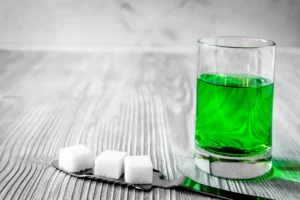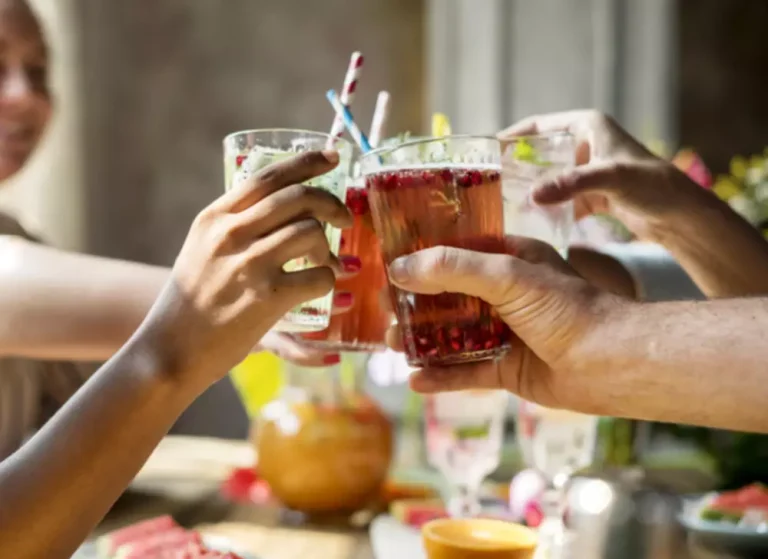Impact of Alcohol on Glycemic Control and Insulin Action PMC

Insulin primarily serves to lower blood sugar levels by promoting the uptake of sugar (i.e., glucose) in the muscles and fat (i.e., adipose) tissue as well as the conversion of glucose into its storage form, glycogen. In addition, insulin inhibits the production of more sugar molecules (i.e., gluconeogenesis) in the liver. Accordingly, it promotes gluconeogenesis and the breakdown of glycogen into glucose.
Meth and heat are a deadly mix. Users in America’s hottest big city rarely get the message

Many existing alcohol-diabetes studies may have therefore overestimated the degree of risk reduction among moderate consumers of alcohol by comparing drinkers to a less healthy nondrinking referent category (17). Indeed, in a meta-analysis exploring the relationship between alcohol consumption and all-cause mortality, reductions in risk were attenuated when data were restricted to studies that excluded former drinkers from the referent category (18). To circumvent this concern, a variable infusion of glucose was administered, which effectively clamped the blood glucose at either fed or high physiological concentrations during the concomitant infusion of saline or alcohol. Under this well-controlled condition, individuals infused with alcohol showed potentiation of both the early- and late-phase release of insulin [86].

Alcohol use of diabetes patients: The need for assessment and intervention
- Alcohol metabolism in the liver, however, actually shuts down the process of gluconeogenesis and thus the second line of defense against hypoglycemia.
- Intriguingly, we observed that diabetic subjects consuming 13 g alcohol daily for 3 months showed no increase in HDL.
- One mechanism through which chronic use of alcohol might affect numerous processes that are aligned with neuroendocrinology of T2DM is through the alteration of appetite regulating peptides, particularly, ghrelin and leptin.
- In some cases, women with diabetes may have no more than one alcoholic beverage a day.
- If you have a history of depression or depressive symptoms, drinking alcohol can worsen your condition.
People with diabetes should be sure to pay attention to any potential warnings. In an average person, the liver breaks down roughly one standard alcoholic drink per hour. Any alcohol that the liver does not break down is removed by the lungs, kidneys, and skin through urine and sweat. Everyday Health follows strict sourcing guidelines to ensure the accuracy of its content, outlined in our editorial policy. We use only trustworthy sources, including peer-reviewed studies, board-certified medical experts, patients with lived experience, and information from top institutions.
Challenges of Type 2 Diabetes in Patients With Alcohol Dependence
- Ketoacidosis typically occurs in patients with type 1 diabetes who completely lack insulin.
- This includes knowledge of the efficacy of brief interventions including brief advice.
- It may be wise to set an alarm on a phone to wake up and check glucose for several hours after going to bed.
- Alcohol-induced differences in plasma insulin appear independent of a change in hepatic insulin extraction [85].
If you struggle to keep your diabetes stabilized, you may want to avoid alcoholic drinks or speak with your healthcare provider first. Consuming alcohol can worsen diabetes complications, such as retinopathy (damage to blood vessels in the retina), neuropathy (nerve damage), and nephropathy (kidney damage). If you take metformin, drinking excessive amounts of alcohol can increase the risk of a rare condition called lactic acidosis when lactic acid builds up in the bloodstream. When you have alcohol, it may take some time to figure out the foods that work best for you.
Effects of alcohol
- Dr. Pinsker is board certified in Clinical Informatics, Pediatric Endocrinology, and General Pediatrics.
- This suggests that alcohol might impair fasting and postprandial glycemic controls and thus, alcohol consumption may be a risk factor for T2DM [15].
- Likewise, there was no change in glucose tolerance in chronic alcohol-fed rats [89,90,91] or mice [92].
- They can avoid exercise and movement outdoors after they consume, perhaps heading directly to a cooling center to lie down.
- One of its many jobs is to store glucose and send it back to your bloodstream to stabilize your blood sugar levels as needed, particularly overnight.
- Such a finding hints at marked heterogeneity between the two groups of publications.
Type 1 diabetes is an autoimmune disease—that is, a disease in which the body’s immune system attacks and destroys not only foreign molecules or organisms but also some of the body’s own cells. In most patients, the disease develops before age 40, primarily during childhood or adolescence. In those patients, the immune system attacks certain cells of the pancreas, called beta cells. (For more information on the structure and function of the pancreas, see textbox, p. 213.) Beta cells produce insulin, one of the two major hormones involved in regulating the body’s blood sugar levels and other metabolic functions.

The resulting alcohol-induced decrease in pyruvate lowers pyruvate carboxylase, the rate limiting gluconeogenic enzyme, thereby contributing to the decrease in hepatic glucose output [38]. Aside from these changes, however, reports are inconsistent and contradictory regarding the effects of alcohol on glycolytic and gluconeogenic enzymes [33,38,42]. In vivo determination of transhepatic glucose flux in 48–72 h fasted dogs, with essentially no glycogen reserves, indicates acute alcohol markedly impairs gluconeogenesis [31]. Alcohol also dose-dependently inhibits lactate-stimulated gluconeogenesis when given acutely in the in situ perfused liver [32] and when added to isolated hepatocytes [33]. Collectively, these data are consistent with those from in vivo studies showing acute alcohol decreases whole-body estimates of glucose recycling (e.g., glucose → lactate → glucose) and lactate turnover [27].
- Basal cardiac glucose uptake (both atria and ventricle) also did not differ between pair-fed and chronic alcohol-fed rats [14].
- Further, alcohol did not alter in vivo glucose uptake by hepatocytes, Kupffer cells or hepatic endothelial cells [74].
- If you can’t face food or you’ve been sick, drink as many fluids as you can, including some sugary (non-diet) drinks if your blood sugar levels are low.
- Using the isolated perfused pancreas, alcohol did not alter basal insulin secretion but did impair glucose-stimulated insulin secretion (GSIS) in a dose-dependent manner [101].
While moderate alcohol consumption lowers blood sugar, heavy consumption is harmful to diabetes and other aspects of health. Diabetic eye disease (i.e., retinopathy) is another troublesome tissue complication of diabetes and one of the leading causes of blindness in the United States today. Good blood sugar and blood pressure control as well can diabetics get drunk as regular eye examinations are essential for the prevention of retinopathy. Heavy alcohol consumption may increase a person’s risk for developing this disease. Interestingly, the risk of retinopathy was independent of the men’s ability to control their blood sugar, suggesting that alcohol may directly damage the eyes or related structures.
In this regard, hepatocytes isolated from chronic alcohol-fed rats had lower rates of lactate-derived gluconeogenesis [43] and the gluconeogenic capacity of ex vivo perfused liver from female alcohol-fed rats was reduced [44]. As noted above, the studies on glucose tolerance and insulin resistance in alcoholism focused on the impact of chronic heavy use of alcohol on the development of T2DM. Accordingly, deterioration in glucose homeostasis and insulin secretion in alcohol dependence may not only represent a consequence of T2DM, but also plays an important role in its cause, as well as its treatment. While many people with diabetes can drink alcohol in moderation, it’s important to understand the possible risks of alcohol use and what you can do to lower them.

Lascia un commento